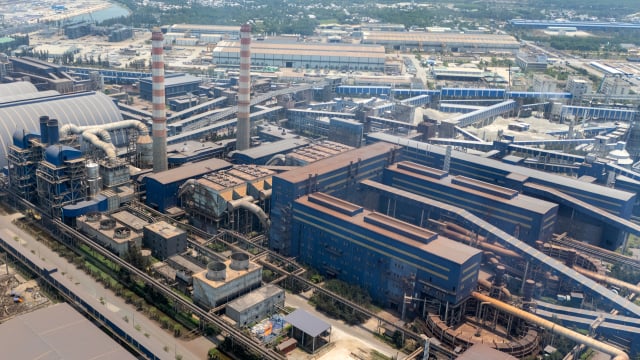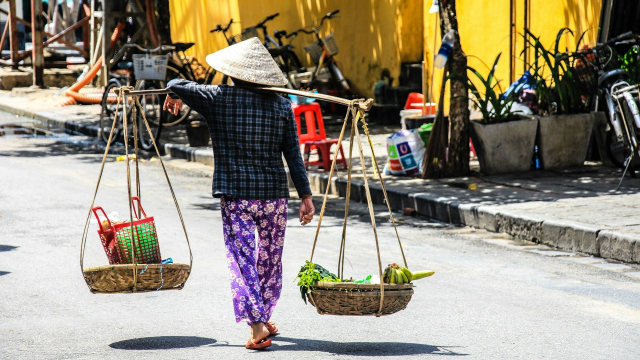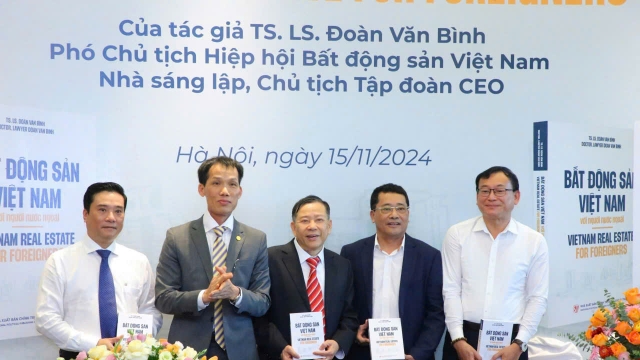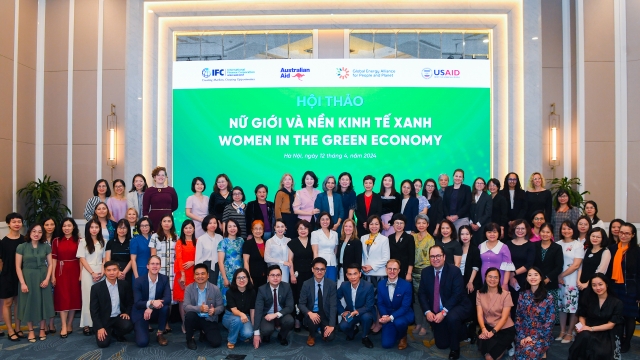National Focus
Expats in Vietnam earn over $90,000 each annually
Expats in Vietnam reveal that annually they earn on average $90,408 and one-fourth of them own property in Vietnam, according to an HSBC's annual survey.

"31 per cent of expat seeing an income rise of 25% and above," stated the HSBC’s 11th annual Expat Explorer survey, adding that however, the property ownership is lower than the global average at 36 per cent.
"Vietnam ranked first place in the world with nearly three quarters saying that moving to Vietnam helps them save more while 72 per cent also agree that they have more disposable income than they did in their home country," stated the survey.
Both proportions are higher than the aforementioned global average at 52% for savings and 56% for disposable income.
The most popular purpose of their saving or investment still belongs to retirement, followed by buying the first/next property.
Expats experience other material benefits by moving abroad. More than half of expats in Vietnam say they take more holidays; many also live in a better property, have more household staff and spend more on children’s education.
Why did expats move to Vietnam?
According to HSBC, this year, Vietnam has increased its ranking from 23rd to 19th place as a country where expats are eager to live and work.
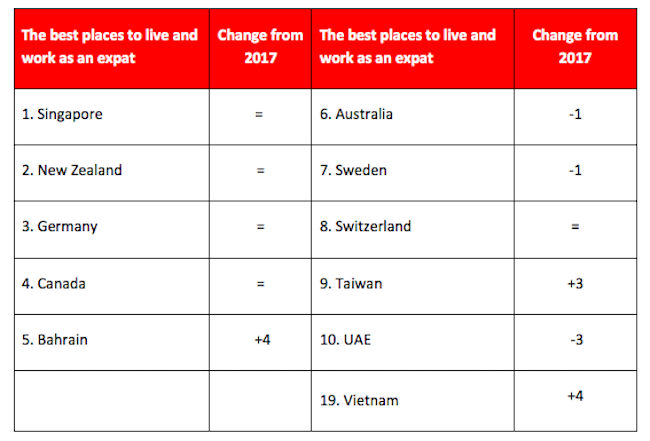
The top three reasons drawn from HSBC's survey include finding a new challenge, progressing their career and improving their quality of life. With these aspirations in mind, almost half agree that Vietnam is a good place for expats who want to progress their career.
Expat employment also comes with its perks. More than half of expats in Vietnam receive benefits as part of their employment contract with 73 per cent receiving health and medical allowances, 57 per cent an annual trip home or airfare allowance, and 42 per cent accommodation allowance, which are much higher than the global average.
Although the average income for an expat in Vietnam is more than $90,000, fewer expats have financial concerns than among expats globally thanks partly to a reasonable cost of living and good allowances.
When there are still great concerns about economic uncertainty in some countries, two-thirds of expats say they feel confident about the Vietnamese economy.
"In regard to their financial well-being, the issues that most concern them are more restrictions on moving their money across countries (37%), economic uncertainty globally (24%) and less favourable exchange rate (22%), less job security for expats and their partner (22%) in Vietnam," stated the survey.
Vietnam stays relatively competitive in the eyes of expats in terms of economic elements. The country ranks 10th in the economics sub-league table, the second high after Singapore among the six ASEAN countries. In economics, Vietnam ranks the first place in the world helping expats save more and have more disposable income.
Work is less stressful than it was at home for almost 40 per cent of expats who say they are more fulfilled working in Vietnam than they were at home.
35 per cent of expats here respond that they can socialise at work better than in their home country. 92 per cent of expats say they are as happy or happier working in Vietnam than they were at home.
Thinking about their early experience of life as an expat in Vietnam, under one third of expats enjoy the ease of organising finances (e.g. bank account, insurance, paying taxes) and more than one third experience healthcare issues such as local doctor and insurance without difficulty (global average 43 per cent and 46 per cent respectively).
Besides that, just 18 per cent of expat parents agree that the quality of child care in Vietnam is better than that in their home country, compared to the global average of 38 per cent.
Thai tycoon unveils strategy for largest industrial park in Vietnam
Resolution 68: A turning point in Vietnam's private sector policy
As Vietnam sets its sights on becoming a high-income country by 2045, Resolution 68 lays a crucial foundation. But turning vision into reality requires not only good policy - but also unwavering execution, mutual trust and national unity.
Vietnam plans upgrade of Gia Binh airport to dual-use international hub
Vietnam plans to upgrade Gia Binh Airport in Bac Ninh province into a dual-use international airport to support both military and civilian operations, the government said on Friday.
Lives under the scorching sun: Outdoor workers racing against climate change
Under unforgiving conditions, the outdoor workers - the backbone of urban economies - endure the harshest impacts of climate change while remaining overlooked by social safety nets. Their resilience and struggles highlight the urgent need for better protection in the face of rising temperatures and precarious livelihoods.
CEO Group chairman unveils guide to Vietnam real estate for foreigners
Doan Van Binh, Chairman of CEO Group and Vice President of the Vietnam National Real Estate Association, introduced his latest book, “Vietnam Real Estate for Foreigners,” at a launch event in Hanoi on Friday.
Women leading the charge in Vietnam's green transition
Acting for increased women’s participation and leadership in climate action, Vietnam can accelerate a transition that is more inclusive, just, and impactful.
Steam for girls: A journey of passionate and creative girls
The "Steam for girls 2024" competition provides a creative platform for Steam and an opportunity for students to connect with peers from various regions within Vietnam and internationally.


















